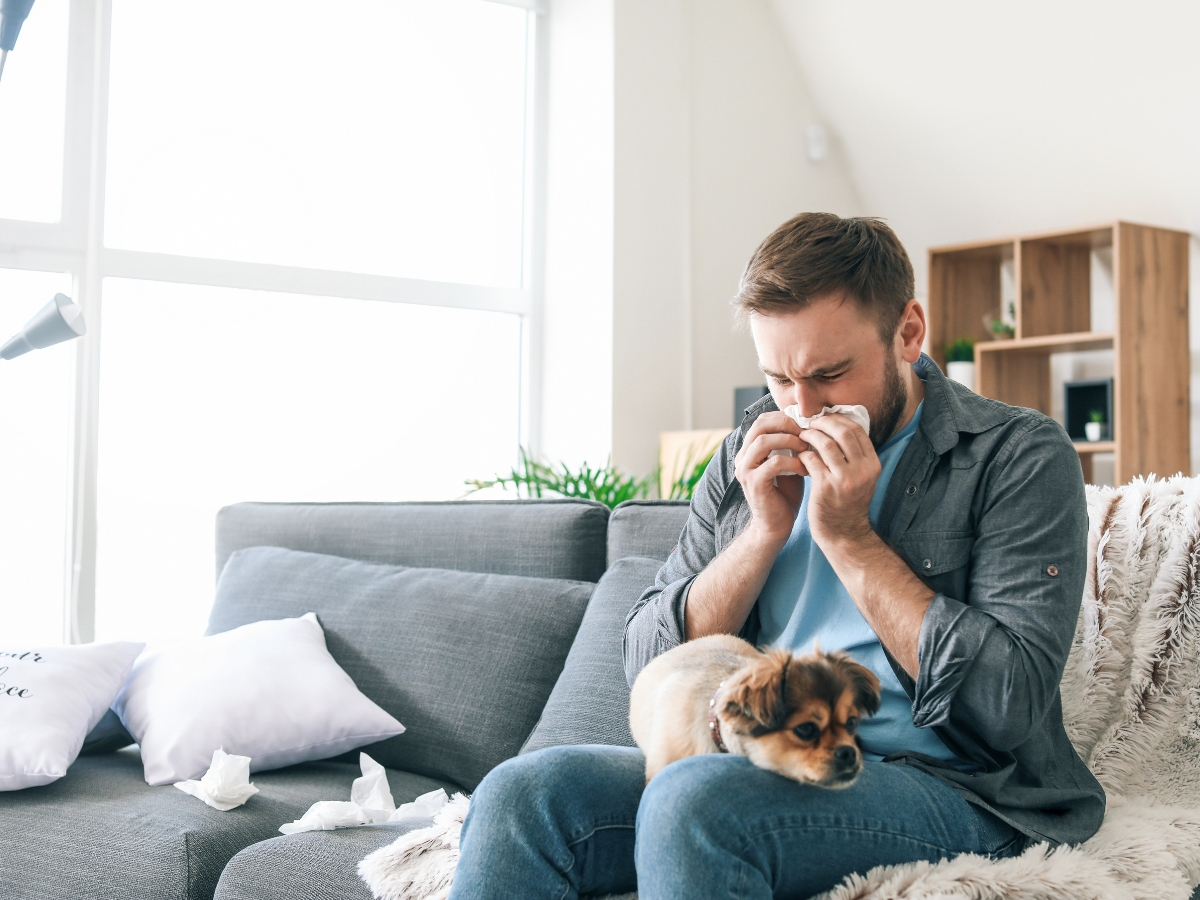Health & Fitness
Can Allergy Medicines Be Dangerous?
Allergy medicines can cause side effects. The New Jersey Poison Control Center provides safety tips.

Spring is in full swing and so is allergy season. Millions of people suffer each year from allergies caused by pollen from grass, weeds, flowers, or trees. Allergy sufferers turn to over-the-counter and prescription allergy products (antihistamines) for relief of common symptoms including coughing, sneezing, runny nose, congestion, and itchy eyes, nose, or throat. Antihistamines come in different forms — liquids, pills, creams, eye drops, and nasal sprays. These products help relieve the discomfort of symptoms, but they can also cause side effects.
“All medicines have side effects associated with them even when they are taken appropriately and according to dosing directions on the label,” says Diane Calello, executive and medical director of the New Jersey Poison Control Center at Rutgers New Jersey Medical School. “We want consumers to be aware of the potential side effects of over-the-counter and prescription allergy medicine which can range from agitation to drowsiness to upset stomach or liver damage.”
All medicines, including antihistamines, carry risk of serious side effects. Non-prescription medicines (over-the-counter) have the same potential for dangerous side effects, drug-to-drug interactions, and overdose as prescription medicines. Many mistakenly believe non-prescription drugs carry no risk because they can be bought without a prescription at a local retail store. This is not true. The poison control center’s medical professionals answer daily calls for help involving many over-the-counter products, including vitamins and supplements.
Find out what's happening in Watchung-Green Brookwith free, real-time updates from Patch.
Anyone who takes medicines, including vitamins and supplements, is at risk for potentially harmful effects. Follow these safety tips to reduce your risk of injury when taking medicine (over-the-counter, prescription, vitamins, and supplements).
- Lock up medicine to prevent accidental poisoning. Since children (and pets) are curious, they are at an increased risk for accidentally ingesting medicines. This could lead to severe poisoning and life-threatening symptoms. Medicines are commonly mistaken for candy because they are small and colorful.
- Select medicines that treat ONLY the symptoms you have. For example, use a decongestant if you are congested, but only use decongestants with cough suppressant if you have a cough as well.
- Be mindful that many medicines contain more than one ingredient, and some may even contain alcohol. Many ingredients used in medicine can interact dangerously with alcohol causing side effects like nausea, vomiting, drowsiness, fainting, and/or loss of coordination. Keep in mind that these interactions can still occur even if they were not ingested at the same time.
- Watch for the same active ingredients in products taken at the same time. Many medicines contain the same active ingredients, even if they have different names and/or intended purposes. Taking these together, even if each is in the intended dose, can result in serious overdose.
- More does not mean better. When it comes to medicines, it is important to follow the directions exactly for adults and children. Do not take medicines longer or in higher doses than the label recommends. To prevent dosing errors when using liquid medicines, always measure the amount of medicine using a dosing tool (oral syringe, dosing spoon, dosing cup, or dosing dropper). Do not use a kitchen soup spoon (utensil) to measure medicine because spoon size varies from set to set — there's no standard spoon size.
- Many medicines make driving unsafe. Many legal drugs, including allergy medicines, can affect a person’s ability to drive safely. Many products cause side effects like sleepiness, fatigue (tiredness), loss of focus and attention, blurred vision, and decreased coordination. This makes it dangerous to operate any type of machinery including a car, bus, train, plane, boat, bicycle, or motorized scooter. “Drugged Driving” (driving under the influence of certain drugs/medicines) can get you in the same kind of trouble as driving under the influence of alcohol.
- Be careful about dosage recommendations especially with children. Read the dosing directions carefully to make sure you are taking the right amount of medicine. Infants and children should only be given medicines specifically formulated for them, never medicines made for adults. It is best to measure medicine according to their weight, rather than their age.
- Avoid adverse drug interactions. Be extra cautious when taking more than one medicine (prescription, over-the-counter, or dietary supplement) at a time. Drug-to-drug interactions can cause serious health effects and death. Ask your pharmacist, healthcare provider, or the medical staff at the New Jersey Poison Control Center for help in choosing medicines that will not interact with the medicines you are already taking.
If you think someone came in contact with something dangerous, contact the New Jersey Poison Control Center immediately for medical treatment advice. Anyone can call for help – children, teens, and adults. Poison control centers are a medical resource for both the public and healthcare professionals.
Find out what's happening in Watchung-Green Brookwith free, real-time updates from Patch.
Get help 24/7 — Call 1-800-222-1222 or Chat Here. If someone is not breathing, hard to wake up, or having a seizure, call 9-1-1.